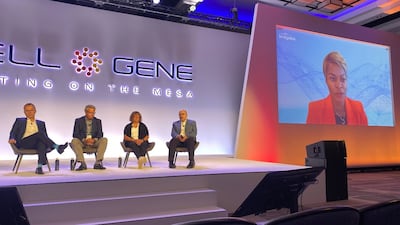
Review Pathways

The Pharmacy Compounding Advisory Committee unanimously voted to add hydroxyprogesterone caproate products for reducing the risk of recurrent singleton spontaneous preterm birth to the Withdrawn or Removed List under sections 503A and 503B of the Food, Drug and Cosmetic Act.

Sponsors of generic drug applications that miss a goal date, but do not receive an action because of complex scientific or legal questions, would get a notice outlining the lingering issue as part of a new pilot program that might become permanent in the next review cycle.

Japan is cautiously easing Japanese clinical data requirements for rare disease drugs to allow faster and more flexible approvals, including on a conditional basis supported by postmarketing studies.

New nods for Boehringer Ingelheim’s survodutide, Sagimet’s denifanstat and Mirum’s volixibat bring the FDA’s non-infectious liver disease breakthrough therapy designations to 15, with six designees already approved.

A court order encompassing funding, drug pricing, clinical trials and overall policy implementation aspects is expected to cause a paradigm shift in the treatment of rare diseases in India. Sarepta, Roche and Sanofi are among the companies that have been part of pricing discussions.

The proposed ban would not affect compounding hydroxyprogesterone caproate for various gynecological indications which remain the subject of approved, albeit discontinued, new and generic drug applications, the US FDA said in an advisory committee briefing document.

Chief Medical Officer Hilary Marston says a black box model could be a problem for reviewers, after CDER and CBER officials said unexplainable AI models could be acceptable but transparency is important.

Regulators from the US, EU, Japan and UK discuss the merits of regulatory convergence for cell and gene therapies, but say that practical challenges often limit their ability to align on pharmaceutical regulatory processes.

Meeting the regulatory gold standard for drug candidates in ultra-rare diseases can be impractical, a regulatory expert says, but greater collaboration and shared insights from regulatory reviews could help find a viable path forward.

The rate of non-submissions for combination therapies in England has been on a downward trend in the last two years.

Nipocalimab is an investigational FcRn blocker for treating generalized myasthenia gravis that was also recently filed for regulatory review in the US.

The number of standard and priority reviews also decreased significantly in FY 2023 compared to the previous year, which caused the fee for redeeming a voucher to rise.

A US FDA webinar for start-up sponsors showcased staff who sound enthusiastic about helping drug developers advance their projects, while also emphasizing the importance of early and continual engagement with the agency.

US FDA Office of New Drugs Director Peter Stein says review divisions have made the case that a discussion-only meeting would solicit the necessary input.

The European Medicines Agency is mulling how best to involve experts in its decision-making processes while avoiding potential conflicts of interest, says executive director Emer Cooke.

Sponsors Aim To Avoid Confirmatory Trial Hurdles That Plagued Ocaliva In Primary Biliary Cholangitis
The FDA and sponsors of two new accelerated approval drugs for PBC have taken steps in study design, initiation and reporting transparency to ensure timely completion.

Advisory committee concerns cast clouds over Iterum’s oral antibiotic, Intercept’s Ocaliva, and perioperative immuno-oncology regimens, while CSL and Pfizer aim to take their hematology franchises in new directions.

Pink Sheet reporters and editors discuss Pfizer’s abrupt decision to withdraw Oxbryta, the US FDA’s Oncologic Drugs Advisory Committee bringing sponsors of approved products back to discuss labeling changes while competitors are pending, and the new CEO of a generic industry trade association.

Maturing data supporting first-line indications for Merck’s Keytruda, Bristol’s Opdivo and BeiGene’s Tevimbra show inadequate efficacy for patients at the lowest level of PD-L1 expression in esophageal and gastric cancers.

The program for collaborative gene therapy reviews with the European Medicines Agency is starting with simple applications, but after launch could be expanded to earlier discussions of CMC and pharm/tox data requirements, the FDA’s Nicole Verdun said.